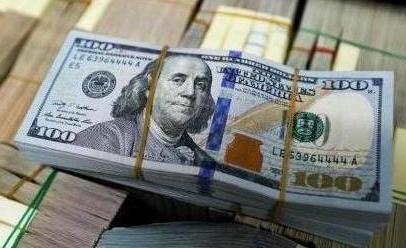U.S. officials discourage EU bank de-risking of Sudan’s transactions
December 15, 2016 (KHARTOUM) – U.S. officials have encouraged the international banks to deal with Sudan in the areas of humanitarian aid and personal transactions pointing that sanctions aim to block the assets of the government and targeted persons.

Last Wednesday 14 December, London-based Asharq Al-Awsat newspaper said the meeting would be held in the upcoming days, however financial and diplomatic sources told Sudan Tribune that the meeting had been already on Monday 12 December.
Financial sources said OFAC officials spoke about de-risking issue towards Sudan adding they understand that it is motivated by fears of financial fines.
“OFAC official said the fines are imposed only when there is a clear and repeated misuse of U.S. financial system but not cases of honest mistake,” said the source, adding that they also underlined that ” 90%of OFAC investigations result in no action”.
Since 1997 Sudan has been under U.S. trade and financial sanctions. In May 2015, a judge ordered the French BNP Paribas to pay 8.83 billion for violating sanctions on Sudan from 2004 to 2012. As a result many financial international institutions stopped banking transfers fearing punishments to avoid problems with the American courts.
However, to correct the negative impact of the sanctions on ordinary Sudanese, the U.S. Department of State organized a workshop in New York on September 19, 2016 attended by foreign and domestic financial institutions and members of the private sector U.S.-Sudan Business Council in a bid to clarify the situation with regard to Sudan sanctions.
Also, U.S. Undersecretary of Treasury recently held a meeting with Gulf banks to encourage them to perform personal transactions by Sudanese individuals to their families pointing, that the de-risking push people out of the regulated financial system.
In Khartoum, the ruling National Congress Party (NCP) said London meeting was held within the framework of ongoing dialogue between American administration and Sudanese government to normalize bilateral relations.
“The meeting was a positive step towards the lift of ban on bank transfers and transactions with financial institutions in Sudan,” said NCP official for Europe and United States Osama Faisal in statements to the semi-official Sudanese Media Center (SMC) on Thursday.
During the meeting of 12 December the U.S. officials repeated that personal transactions, humanitarian aid and some licensed areas of business are authorized through the U.S. financial system .
They also stressed that transactions would not trigger any punishment from the U.S. courts or be under OFAC radar if they do not involve U.S. nationals or do not flow through U.S. banks.
On Monday 31 October, U.S. President Barak Obama extended the 19-year embargo on Sudan for another year, saying Khartoum actions and policies that caused these sanctions continue to pose a threat to the national security and U.S. foreign policy.
However, the Department of State in a separate statement minimized the renewal of sanction saying it is “a technical decision and part of a routine, annual process that does not prejudice the ability of the President to provide sanctions relief at any point in the future”.
(ST)
